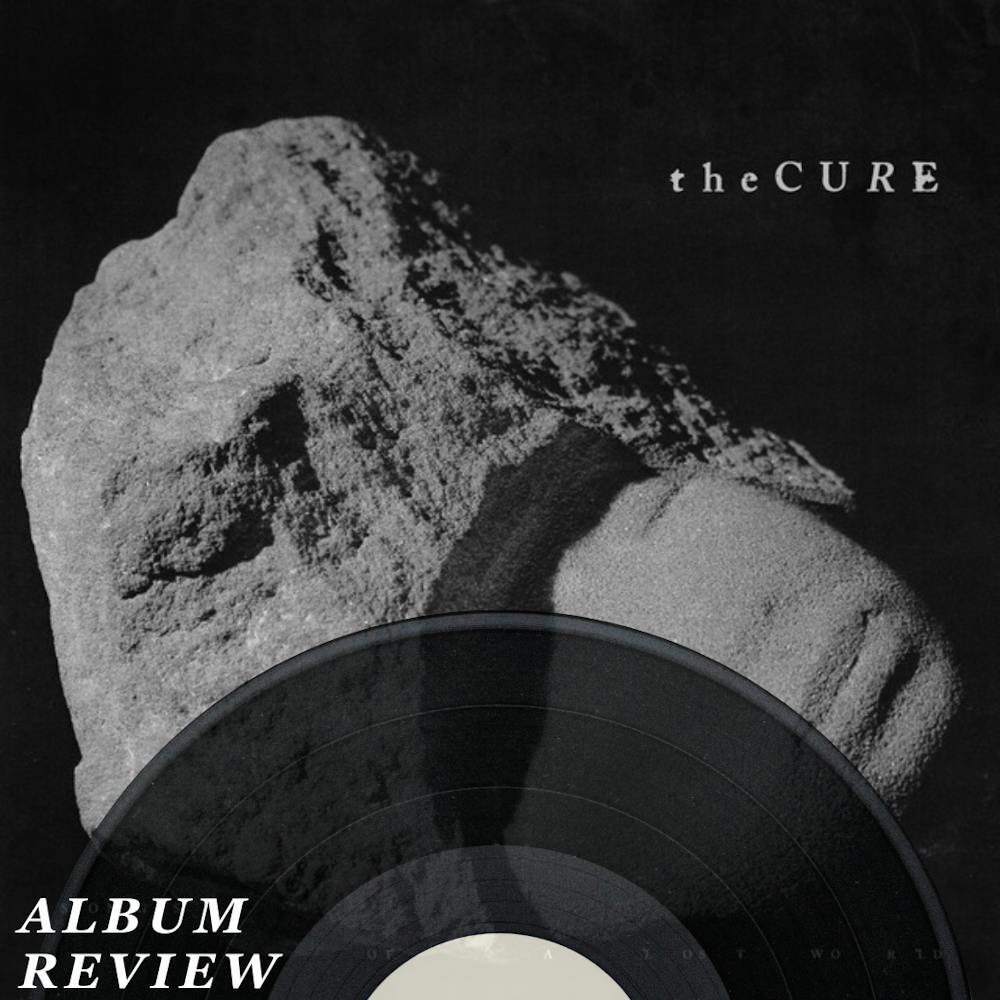English gothic rock band The Cure, who was inducted into the Rock & Roll Hall of Fame in 2019, released a new album titled “Songs Of A Lost World” on Nov. 1. The album marks the band’s first release since 2008, highlighting their long hiatus.
The Cure was formed in 1976 and is considered massively influential in the post-punk and gothic rock subgenres, emulating David Bowie and Jimi Hendrix, and later inspiring bands such as Korn, Beach House and The Smashing Pumpkins. Despite their profound influence in the alternative rock scene, lead vocalist Robert Smith shuns labels, arguing that “It’s so pitiful when ‘goth’ is still tagged onto the name The Cure. We’re not categorizable.” Echoing this, Variety’s A.D. Amorosi describes the new album as an “inventively elegiac epic” that transcends the new-wave style that originally catapulted the band to fame.
“Songs Of A Lost World” is decidedly unnerving. The first hint of this is in the cover art, where what appears to be a fossilized skull rests against a flat black background. The fossil suggests antiquity and is only vaguely recognizable as human. It resembles an artifact from human history — perhaps a charred skeleton at Pompeii or a fossilized caveman — but the dark, empty space behind gives no clues to its earthly origin. The album’s title complements the cover art in its alien humanity: “Songs Of A Lost World” suggests a deep, unsatisfied, almost primordial sense of nostalgic longing that each song displays with a sort of tragic beauty.
A word cloud filled with the titles of each album track would be a melancholy sight, with songs such as “Alone,” “And Nothing is Forever” and “I Can Never Say Goodbye.” Believe it or not, The Cure grapples with old age, death and legacy throughout the eight-song album. These songs are long and slow, with complex musical intros filled with piano and strings that last for minutes before giving way to smooth rock ballads delivered by Smith’s clear, powerful and melodramatic crooning.
In “And Nothing Is Forever,” Smith laments on the passing of a lifetime, singing “My world has grown old,” but yearns for companionship, concluding that “But it really doesn’t matter / If you say we’ll be together.” In this way, The Cure is not simply struggling with death, but with the sense of loss that accompanies death. “And Nothing Is Forever” is not simply about the passing of a life, it is about the end of a relationship. The only solace of death is that a loved one may be there in those final moments.
In “All I Ever Am,” The Cure plays with the idea of a “world” and suggests our individual experiences shape our own. Lamenting on the ephemeral nature of life, they sing, “I waste all my world … all I hold to in belief / That all I ever am / Is somehow never quite all I am now.” The illustration created by the lyrics feels almost deliberately murky. The Cure attempts to capture complex and painful emotions in these pictures of the human psyche. With that they include what might be their own difficulty reckoning with these feelings.
The album’s gloomy sound complements the sadness of the lyrics, yet it retains an almost optimistic nostalgia that gives the album a certain charm. Specifically, the piano is dramatic, the production is theatrical and the drums are booming. It sounds almost like the soundtrack for a fantasy video game, and Smith’s broody, angsty vocals reflect the post-punk era in which The Cure originally defined themselves. Combined with the lengthiness of each track — approximately six minutes — each song truly feels like a journey through “a lost world.”
“Songs Of A Lost World” is not an album that will be playing in the background of a jubilant dinner party or an album you will want to listen to before a basketball game. The deeply personal content of this album makes for a fairly involved listen. For fans of goth-rock or people overwhelmed with the speed and finality of life, this is an engaging album.
Like so many aging bands, I expected this to be a last-ditch effort to remain relevant and profitable. But I was surprised and moved by “Songs Of A Lost World.” Again, we return to the cover art, a fossil of a human passed by the millennia yet still, somehow, ending up as the frontispiece for a musical album almost as if to say there is something left of our existence, even after our world is lost. In “A Fragile Thing,” The Cure suggests that our relationships with those we are lucky enough to share worlds with may be that remnant of ourselves that time cannot extinguish. “‘This love is a fragile thing / ‘This love is my everything,’” they contend, despite the paralyzing reality that there’s “nothing you can do to change the end.”






